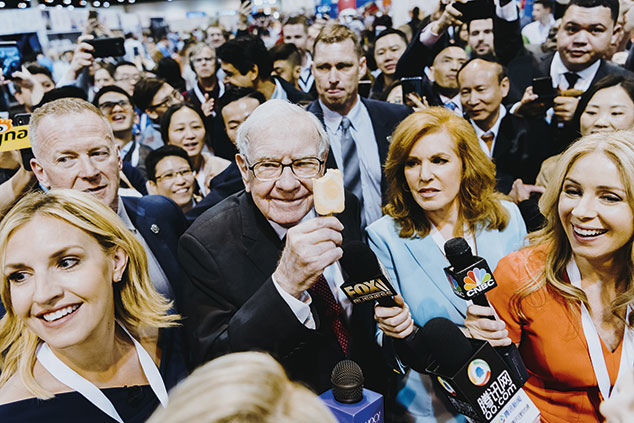
If there is one thing I really hate, it’s the cutesy business of having a sweet child ask a question at the Berkshire Hathaway love in/AGM. The year I went, one asked a question in the form of a poem. The firmly cynical Brit part of my brain has managed to expunge the detail but the gist (with more in the way of lousy rhymes and bad scanning) was: “Oh Warren, you’re so wonderful, how can we all be more like you?” Ick.
This year, however, the questions were, as one newspaper put it, slightly “sharper” than usual. Why? Partly because Berkshire Hathaway has been underperforming the market for a while now, partly because it is holding a large ($114bn) pile of cash (shareholders hate that – if you can’t figure out how to use cash, why not give it back?) and partly because the firm, famous for its long-term value philosophy, has just bought a large pile of shares in Amazon. This makes no sense whatsoever, Bill Smead of Smead Capital told the Financial Times. Buffett is forever telling people to be fearful when others are greedy, and greedy when others are fearful. “Amazon has 45 analysts that cover the stock: 45 buys, zero neutrals, zero sells.” It might be growing more slowly and making a tad more money than it was. But “how is buying the most popular stock on the planet being greedy when others are fearful?”
“How is buying the most popular stock on the planet being greedy when others are fearful?”
Good question, you might say. So do we. You might also ask what a value investor is doing even looking at the tech sector (Berkshire also holds Apple, which means he owns two of the FAANG stocks, the others being Facebook, Netflix and Google/Alphabet) when so many valuations suggest that we are in the middle of yet another great technology bubble. Right now, says Julien Garran of MacroStrategy Partners, there are 30 stocks in the S&P 500 trading on ten times their revenues or above. Look at prices like that, says Garran, and you might think that investors (just as they were in 1999), are “seeing the performance of the FAANGs, reverse engineering a fundamental justification for why it is happening, and then using that justification to buy the stocks”.
Those who like to look for signals that the tech bull is topping out (or at least entering its last gasp) might even want to go so far as to say that this apparent capitulation by Buffett, a man once thought of as the greatest value investor ever, is the best contrarian signal we will ever get that it is time to switch out of growth stocks and into value stocks.
Subscribers can read it in the digital edition or app